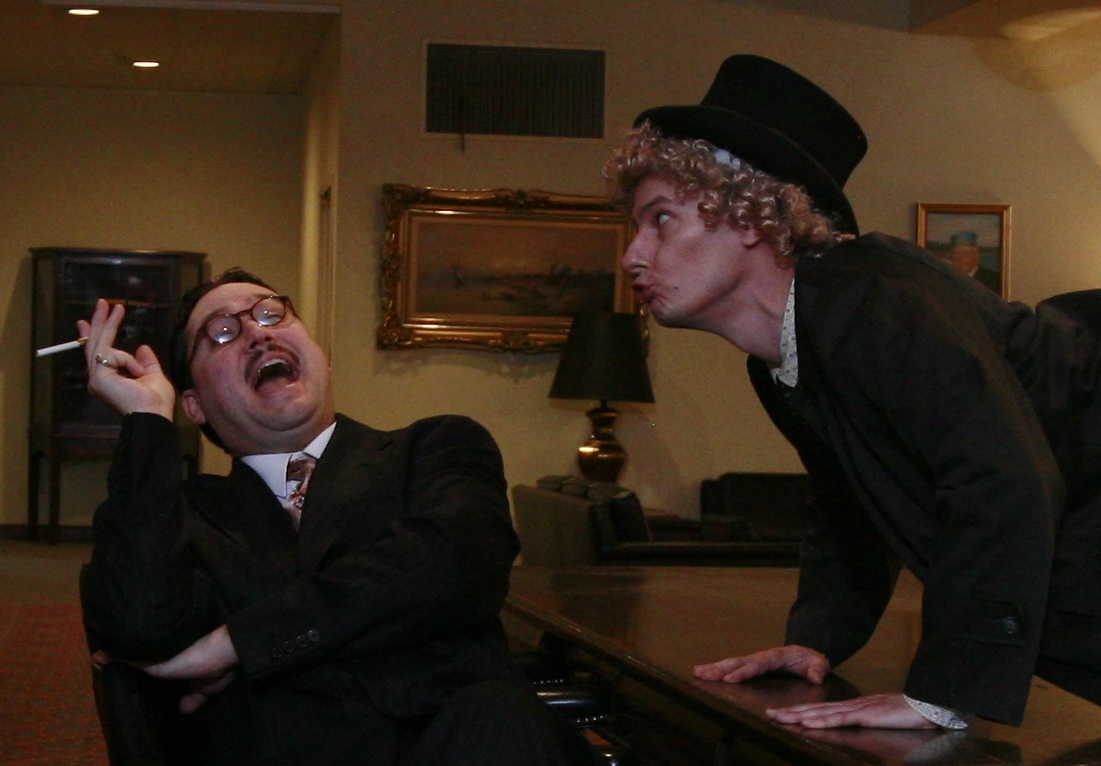The big buzz this week on Portland’s art scene is Friday’s official kickoff of Fertile Ground, a citywide festival of new plays big, small and in between. The sheer ambition of this thing is impressive and endearing and a little scary: How ever will we manage to get to all this stuff?
Well, we won’t.
But we did get a head start over the weekend, taking in last Friday’s opening night of Nancy Keystone’s gigantic Apollo at Portland Center Stage and, on Saturday night, a preview performance of the new and improved Vitriol and Violets, this time with songs and lyrics by the astute and clever jazz composer and pianist Dave Frishberg.
In the theater world “new” plays almost always emerge out of a long process, and both of these have, well, a little history behind them, in a couple of senses. Keystone’s been playing with Apollo for eight years, and its first two acts have been produced before, in Los Angeles. Act Three, funded in part by Center Stage, now joins them for the first time in this new production, creating the complete play. V&V, the Algonquin Round Table play written by Shelly Lipkin, Louanne Moldovan and Sherry Lamoreaux, has also been around the block with a couple of previous work-in-progress productions. This one is the first with Frishberg’s witty songs, and it’s also undergone a lot of streamlining (a few characters have been banished to the wings) and some welcome shaping, making it feel more like a finished play — although the authors say they’re still making adjustments.
 More to the point, both plays are about the American character, as measured through real historical characters and events, and both deal with the gap between the buoyant public perception and the tougher reality of the historic episodes they choose to portray.
More to the point, both plays are about the American character, as measured through real historical characters and events, and both deal with the gap between the buoyant public perception and the tougher reality of the historic episodes they choose to portray.
Oddly, they go about their similar tasks from almost opposite directions.
Keystone’s Apollo is epic theater — “total theater,” this sort of thing is sometimes called — with a grandiosity that splashes wide, wide, wide and occasionally focuses down to the human particular. It comes at you in waves of choreographed sight and sound. And out of its cold sweep of history, a few vivid personalities eventually emerge.
Vitriol and Violets is far more traditional in its theatricality, reeling you in with the particular human comedy of outsize characters such as Alexander Woollcott and Dorothy Parker and letting the history tumble out almost unannounced. Having seduced you with laughter, it doesn’t announce its more serious attentions: It quietly lowers the boom.
Continue reading ‘Apollo’ and ‘Vitriol’: New plays, old obsessions on stage
